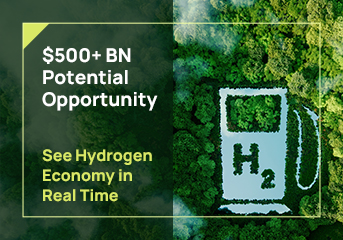Hydrogen Testing, Inspection and Certification Market - Forecast to 2029
The hydrogen testing, inspection, and certification market is projected to grow from USD XX million in 2024, to USD XX million by 2029, growing at a CAGR of XX% from 2024 to 2029. Hydrogen testing, inspection, and certification are essential for advancing the hydrogen economy, a pivotal element in the global shift toward sustainable energy. Considering hydrogen's high flammability and operation under pressure, rigorous safety measures are imperative to prevent accidents and ensure public confidence. The certification process addresses these challenges by guaranteeing the integrity of hydrogen systems throughout their lifecycle. It promotes innovation by enabling the safe development and deployment of new hydrogen technologies, such as fuel cells and hydrogen-powered vehicles. Additionally, it plays a crucial role in regulatory compliance, assisting industries in meeting international standards and gaining market acceptance. Ultimately, Hydrogen Testing and Inspection Certification supports the reliability and efficiency of hydrogen infrastructure, facilitating its seamless integration into the energy grid and fostering a cleaner, more sustainable future.
The hydrogen testing, inspection, and certification market based on service has been categorized as testing, inspection, and certification services. The Hydrogen Testing Service is a specialized process that evaluates the safety, performance, and durability of hydrogen-related systems and components. This service includes a range of tests, such as pressure testing, leak detection, material compatibility assessments, and mechanical integrity evaluations. These tests are designed to simulate real-world conditions and ensure that hydrogen storage tanks, pipelines, fuel cells, and other components can withstand the demands of their operational environments. The Hydrogen Inspection Service systematically examines hydrogen systems and infrastructure to ensure compliance with safety regulations and industry standards. This service includes visual inspections, non-destructive testing (NDT), and advanced diagnostic techniques to detect flaws, corrosion, and other potential issues. Inspectors assess the condition of storage tanks, pipelines, refueling stations, and other critical components, providing detailed reports and recommendations for maintenance or improvements. The Hydrogen Inspection Service plays a vital role in hydrogen systems' ongoing safety and reliability, helping to identify and address issues before they lead to failures or hazards. The certification process involves comprehensive evaluations and audits, including both testing and inspection phases, to verify compliance with international and industry-specific criteria. Certification assures stakeholders, including manufacturers, operators, and regulators, that the hydrogen systems are safe and reliable. In the hydrogen ecosystem, this service is crucial for fostering trust and facilitating the adoption of hydrogen technologies, as it demonstrates a commitment to high safety and quality standards. Certified systems and components are more likely to gain market acceptance and regulatory approval, paving the way for broader implementation of hydrogen as a clean energy source.
Based on sourcing, the hydrogen testing, inspection, and certification market has been categorized as in-house and outsourced. In-house hydrogen testing, inspection, and certification involve internal evaluations and diagnostics, including pressure tests, leak detection, and non-destructive testing, ensuring tailored processes and immediate adjustments. Benefits include control, quicker turnaround, and confidentiality, but require significant investment. Internal certification fosters compliance but may lack objectivity and formal recognition. Outsourcing hydrogen testing, inspection, and certification involves using third-party experts for evaluations like pressure tests and leak detection. This approach is cost-effective, ensuring high-quality, unbiased results without in-house investments. Despite challenges like less control and potential delays, outsourced certification is preferred for its objectivity, credibility, and regulatory compliance.
Based on application, the hydrogen testing, inspection, and certification market has been categorized as upstream, midstream, and downstream. In upstream operations, testing verifies the safety and efficiency of production processes and storage systems. Inspection ensures ongoing integrity, detecting flaws or wear. Certification confirms compliance with standards, fostering trust in production and storage safety. In midstream activities, testing assesses pipeline integrity and material compatibility for safe hydrogen transit. Inspection maintains system reliability, detecting and mitigating risks. Certification ensures compliance, enhancing confidence in the safe transportation and distribution of hydrogen. In downstream applications, testing evaluates fuel cell performance and storage safety in vehicles. Inspection maintains vehicle reliability and safety. Certification verifies compliance, instilling trust in the safety and performance of fuel cell vehicles.
The hydrogen testing, inspection, and certification market has been segmented into North America, Europe, Asia Pacific, and the Rest of the World. The market is crucial for the global hydrogen economy, with distinct regional trends driving its growth. In North America, robust regulatory support and government backing fuel market expansion, especially in infrastructure development like refueling stations and pipelines. The stringent safety regulations and norms in Europe, along with the renewable energy targets, drive high demand for testing, inspection, and certification services, integrating hydrogen into the energy mix. This region sees growth from both established players and emerging startups. Asia Pacific, led by China and Japan, is amongst the key markets for hydrogen testing, inspection, and certification, driven by substantial government investments in hydrogen infrastructure. Innovation focuses on cost-effectiveness and regional compliance.
A few of the players operating in the hydrogen testing, inspection, and certification market include Kiwa (Netherlands), SGS Société Générale de Surveillance SA. (Switzerland), Bureau Veritas (France), UL LLC (US), and TÜV SÜD (Germany) among others.

















Growth opportunities and latent adjacency in Hydrogen Testing, Inspection and Certification Market